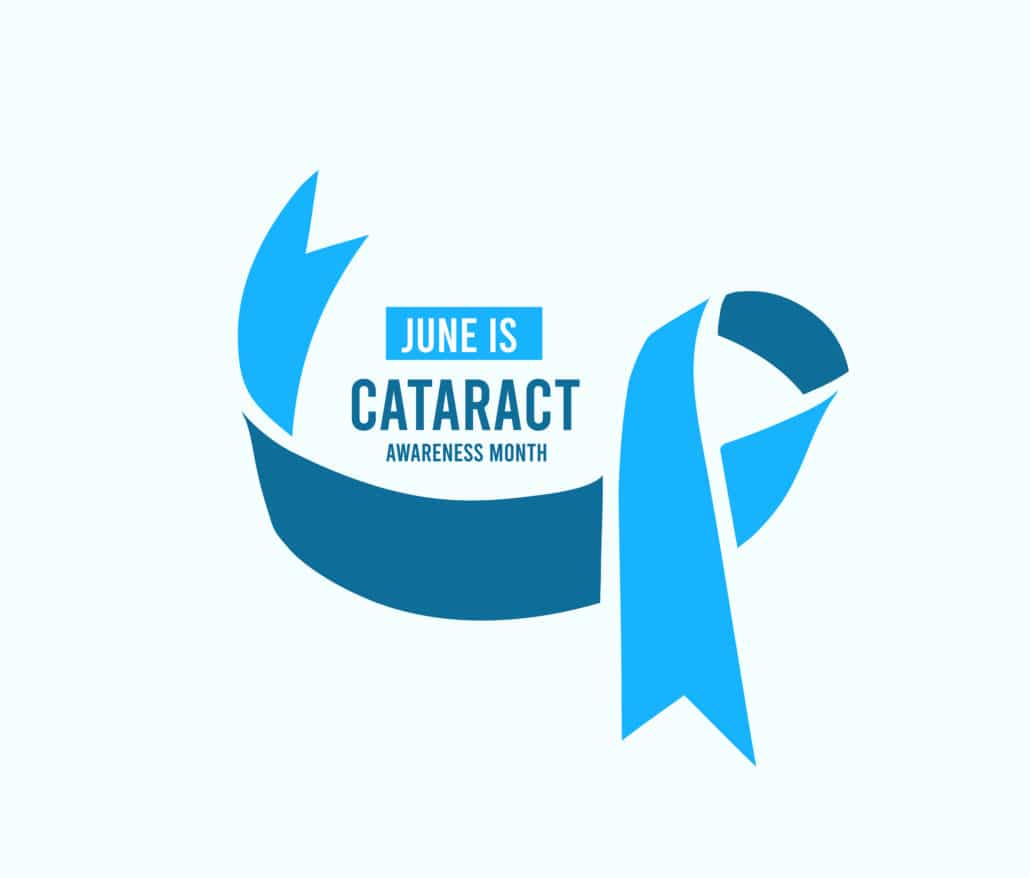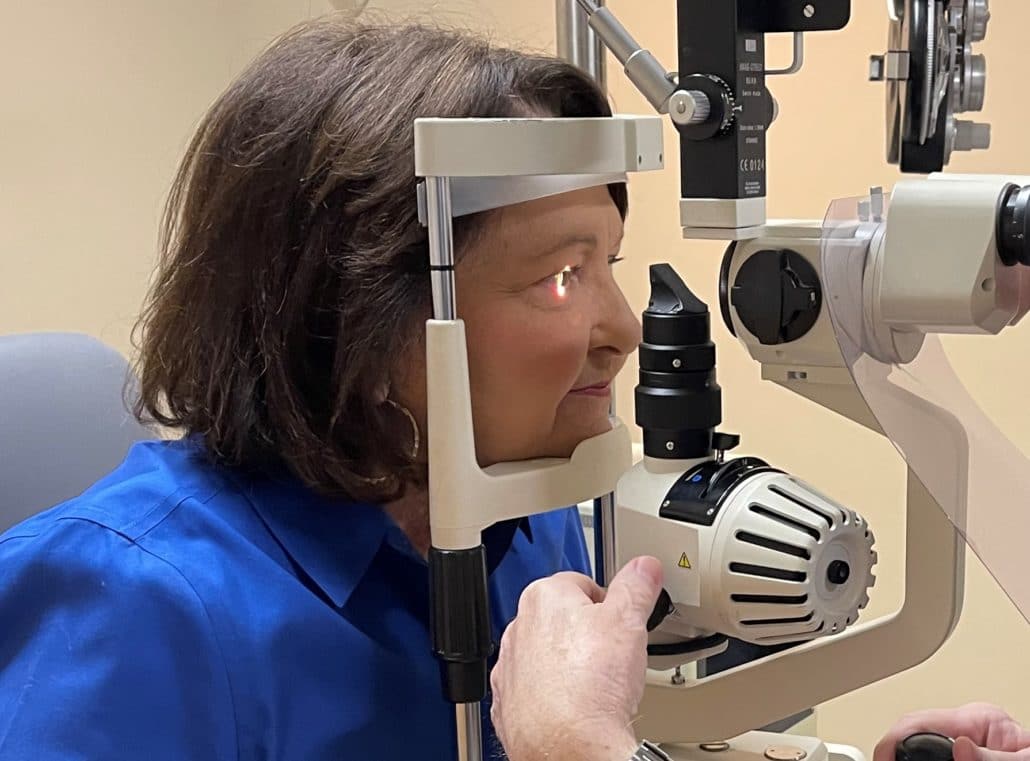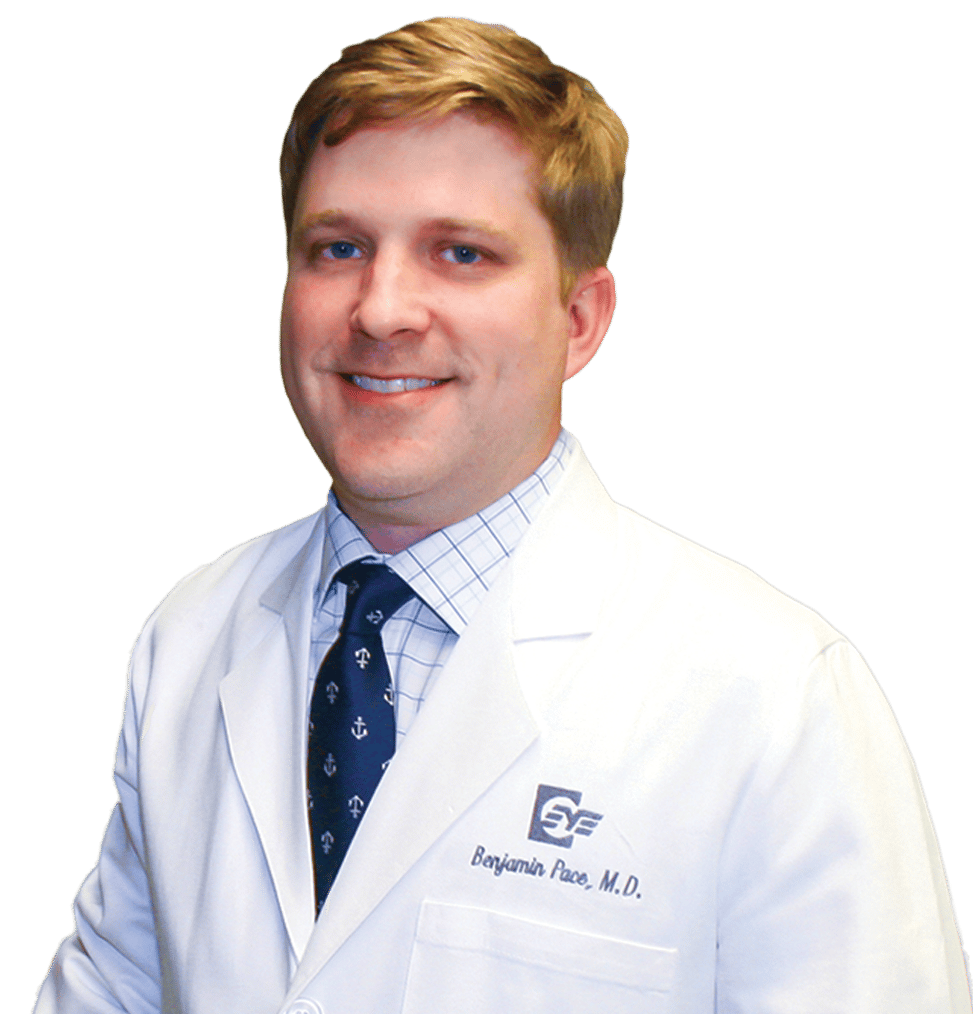Here’s What You Need to Know About Sight-Robbing Cataracts
For a number of years, Sybil McGraw put off surgery for her worsening eyesight, fearing it might be a long and painful procedure. She finally “took the plunge”—and now wishes she would have had the corrective surgery sooner.
“I didn’t realize how impaired my vision had become until afterward,” says McGraw. “Now everything is sharp and clear, and colors are more vivid than ever—and the procedure was painless and didn’t take long.”
McGraw suffered from cataracts, an eye disease that afflicts approximately 25 million Americans. A thickening and clouding of the natural eye lens, cataracts can cause symptoms like blurring, light sensitivity (especially at night), and a significant loss of color perception. It’s one of the top causes, along with glaucoma and age-related macular degeneration, for vision impairment among older Americans.
“Cataracts are something we will all face at some point in our lives,” says Dr. Ben Pace, one of the four eye surgeons with Hattiesburg Eye Clinic who perform cataract surgery. “It’s most common among people in their sixties, seventies or eighties, but we do see cataract development even in people in their forties.”
But thanks to enormous advances in surgery and artificial lens implants, even someone with severe cataracts can regain their eyesight—and they may not need corrective lenses afterward. In recognition of Cataract Awareness Month this June, here’s what Hattiesburg Eye Clinic would like you to know about this vision-robbing condition, and what can be done to overcome it.
Cataracts can happen to anyone. Often the result of natural aging, nearly everyone develops cataracts to some degree. People of certain ethnicities, though, or who smoke, suffer high blood pressure or diabetes, or who’ve had prolonged sun exposure have a higher risk for significant cataract development at an earlier age. “Many lifestyle factors, as well as genetic disposition, can play into cataract development,” says Dr. Pace.
You can slow cataract development. Although you may not be able to stop cataracts altogether, you can slow their development and lessen their severity with a healthy lifestyle—eating foods rich in vitamin C, not smoking and wearing UV-blocking sunglasses while out in the sun. Taking these steps could help protect your eyesight and forestall the need for cataract treatment.
Cataract surgery is quick and painless. Outpatient surgery to remove and replace clouded lenses with new intraocular lenses (IOLs) is usually quick and painless, especially with the use of surgical lasers like the CATALYS® system, the first medical laser designed specifically for cataract surgery and first used in Mississippi by Hattiesburg Eye Clinic. “The recovery period after cataract surgery is typically mild,” says Dr. Pace, “Usually requiring only a week of taking it easy—no heavy lifting, bending over or straining.”
Several IOLs to choose from. The first artificial IOLs were best categorized as “one-size-fits-all.” Not any more: Hattiesburg Eye patients can choose from a number of IOL options to fit their lifestyle. For example, the Eyhance™ lens, the latest in the family of high quality TECNIS IOLs offered by Hattiesburg Eye Clinic, provides sharp, clear vision at far and intermediate distances, and often patients are able to read print without glasses.
Because cataract development is progressive in nature, it’s important to have your eyes checked regularly for changes in your vision. Hattiesburg Eye recommends their patients begin annual eye exams around age 40 or earlier if you have an existing condition or a family history of eye disease.
“There are numerous causes for decreased vision, cataracts being one of them. There’s no way a person can tell whether or not their vision changes are from cataracts or from some other serious condition like glaucoma. That’s why annual eye exams are so important beginning in mid-life, making it easier to catch problems in their early and more treatable stages,” says Dr. Pace.
In the meantime, if you’ve noticed changes in your vision, see your eye doctor as soon as possible to see if cataracts might be the cause. If so, this vision-enhancing—and life-changing—treatment could bring new clarity and focus to your eyesight.
For more information on cataracts and how to treat them, visit our webpage. To learn more about how Hattiesburg Eye Clinic can improve your vision health, call 601-268-5910 (or toll-free 800-624-8254) or schedule a consultation with us online.





